Platforma returns for a seventh year, honouring Somali nomadic life
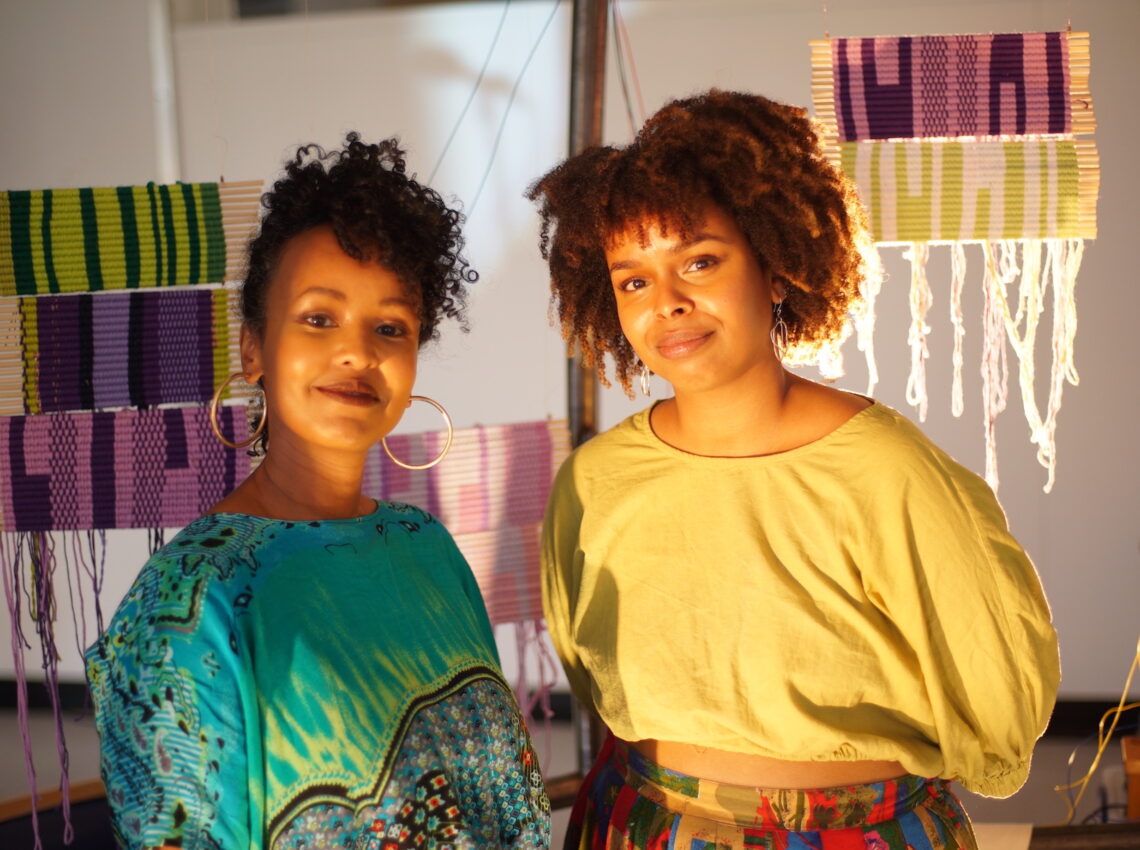
Platforma Festival, produced by leading migrant arts organisation Counterpoints Arts, celebrates arts, refugees, and migration. Returning for a seventh year, this Festival’s edition takes over Bristol and the South West with an eclectic cultural programme.
“What I’ve been really struck by is the way in which Platforma works, with inclusivity at the heart of it, inviting people in to have conversations with us, with other partners, artists, and audiences, creating great relationships along the way,” says Platforma producer Tasnim Siddiqa Amin. And that inclusivity is evident in the array of projects being showcased. From Mohammed Yahya’s programme Hip Hop Gardens, which empowers Bristol-based young migrants and refugees using hip hop and permaculture, to Sudafest: Hope and Healing, a day of crafts, storytelling, and music celebrating Sudanese culture.
For this year’s edition, Platforma also ran an open call for two public art commissions in partnership with ArtReach for work exploring Climate Justice and Displacement. The first commissioned artist is Kaajal Modi who, in her piece Songs Of the Water, created a collaborative audio project working with women from migrant global majority communities about water ecosystems in relation to deprivation, climate change, and colonialism.
The second is feminist Somali art collective dhaqan which has constructed the House of Weaving Songs: an audio-visual outdoor installation seeking to preserve Somali nomadic culture and provide a sanctuary for collective climate anxieties.
In an exclusive interview, dhaqan co-founders Fozia Ismail and Ayan Cilmi spoke to GUAP about their creative process, the importance of tackling climate justice, and their future plans.
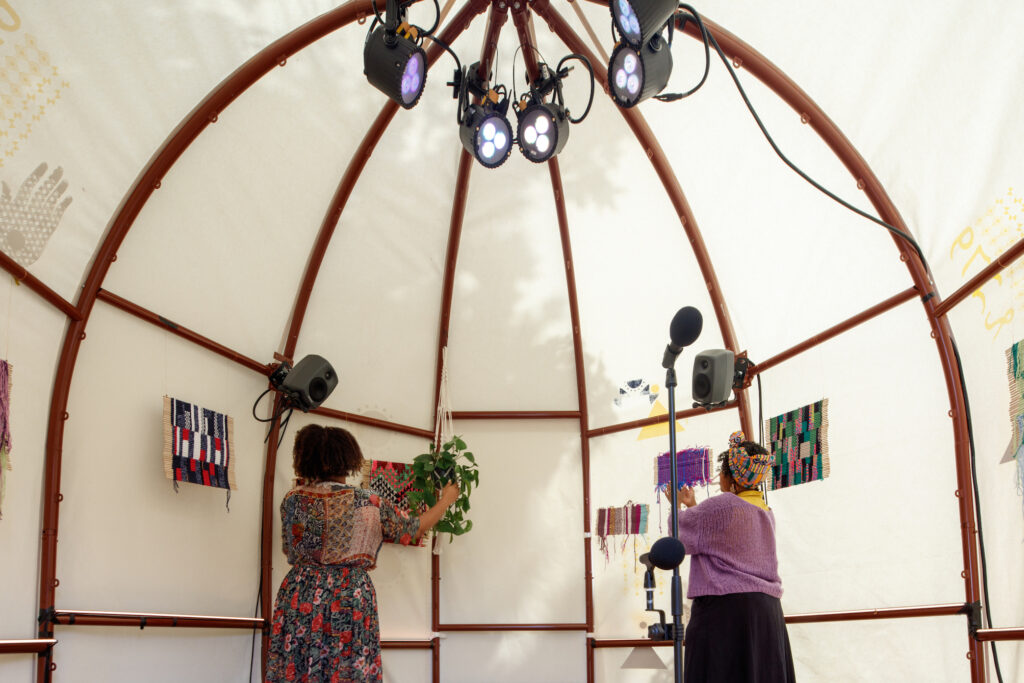
GUAP: How did the House of Weaving Songs come to be?
DHAQAN: Back in 2019 we did a project called Camel Meat & Tapes which was based on tape letters that were sent back and forth between the Somali community here and in East Africa. We made a soundscape that explored orality, ancestors, archies, and identity co-created with Somali elders and young people in Bristol using cassette tapes to unearth the embodied archives of the Somali community.
In one of the sessions, one of the elders came in with a woven tapestry that she sang from. Weaving songs were recorded as part of this session, and we wanted to explore this further.
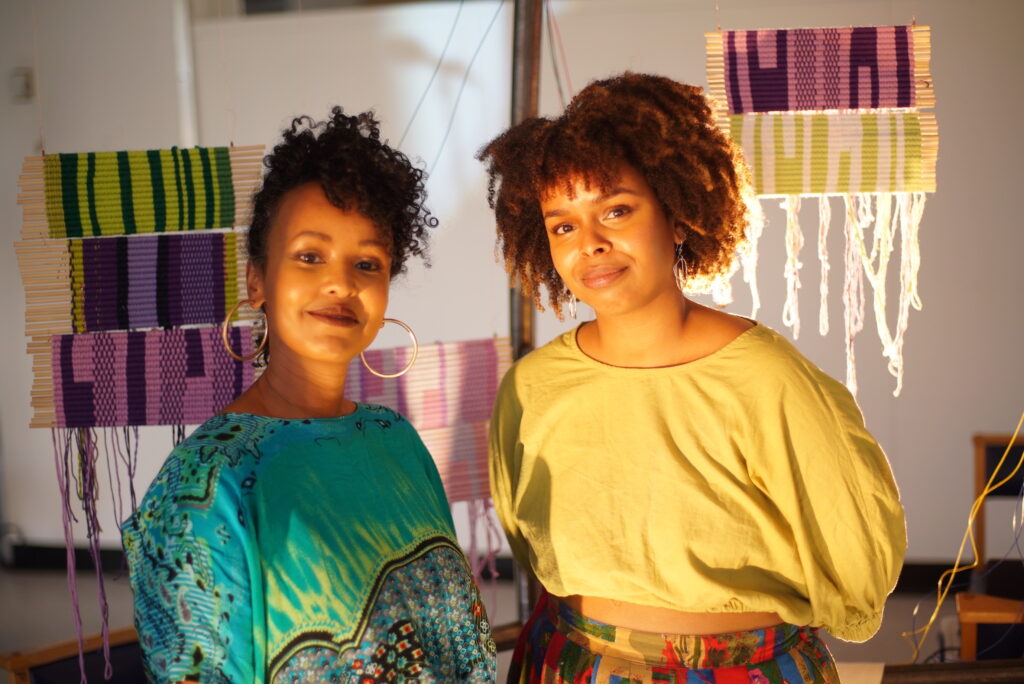
GUAP: Why is it important to preserve and archive Somali nomadic life?
DHAQAN: Climate breakdown has continued to have a devastating impact on Somali people and the pastoral way of life. Somalia is amid its sixth consecutive failed rainy season and an estimated 3 million people in Somalia are now displaced due to climate collapse. These displacements cause disruption to traditional handicrafts being passed down.
Conventionally, in Somali nomadic life, all weaving is done by women: from the creation of the Aqal (a portable house) to almost all the household objects within it. Singing and storytelling are such a key part of how many of these traditions have been handed down.
We want to celebrate and showcase the wonderful creativity at the heart of Somali nomadic culture in an empowering and hopeful experience. We also believe it’s important to hold space for climate narratives that center the communities that are at the forefront of climate genocide.
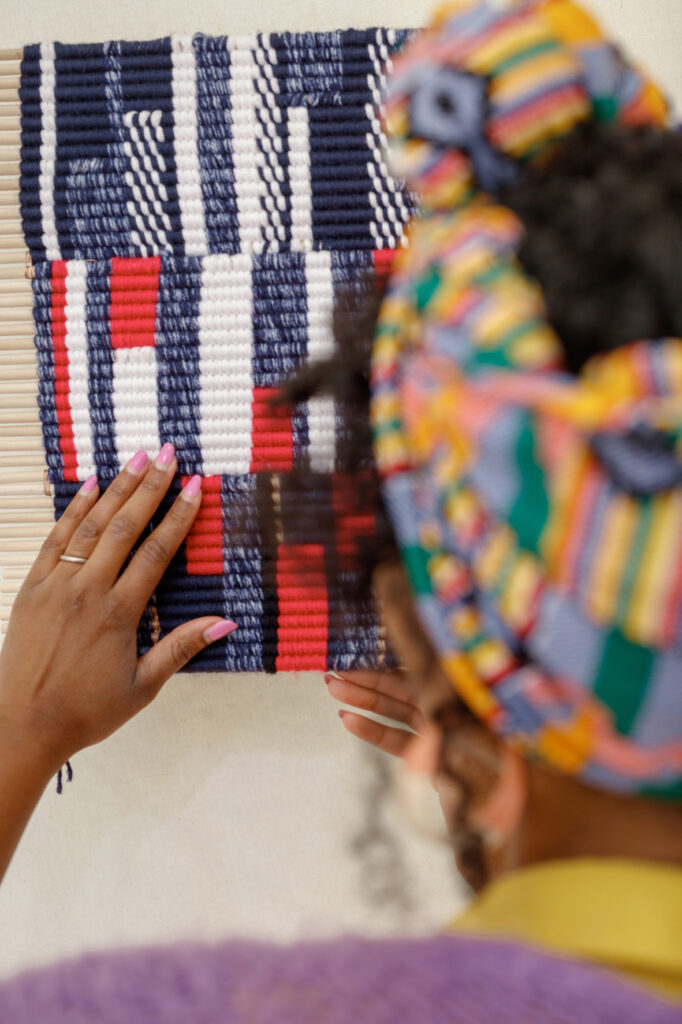
GUAP: How would you like the project to develop?
DHAQAN: We believe many people feel alone with climate anxieties and we want the House of Weaving Songs to hold space for these feelings and echo them back in a beautiful communal and healing soundscape. A key part of this has been doing weaving workshops with the Somali community here in Bristol, London, and even Stockholm. We have been really moved by the reception and joy we’ve witnessed from people reconnecting with an aspect of their culture that sometimes they didn’t know about, but also the intergenerational links this work has created.
We saw people weaving alongside their grandmothers who hadn’t had the opportunity to explore their weaving skills with their families. Some women were picking weaving up again after not having done it for over thirty years. It’s truly been a communal healing experience. We are recreating what it means to be Somali and through weaving we found something that can slow us down and ground us in it. A kind of therapeutic practice that has allowed us to weave through the ruptures of Somali diasporic experiences.
Platforma runs until the 1st of November across Bristol and the Southwest. Explore the full programme here.
Discover more from GUAP’s Arts and Culture Section here.




![ZINO VINCI’S ‘FILTHY & DISGUSTING’EP BRINGS YOU TO THE CORE OF THE ARTIST [@ZinoVinci]](https://guap.co/wp-content/uploads/2023/10/Zino-4.jpg)


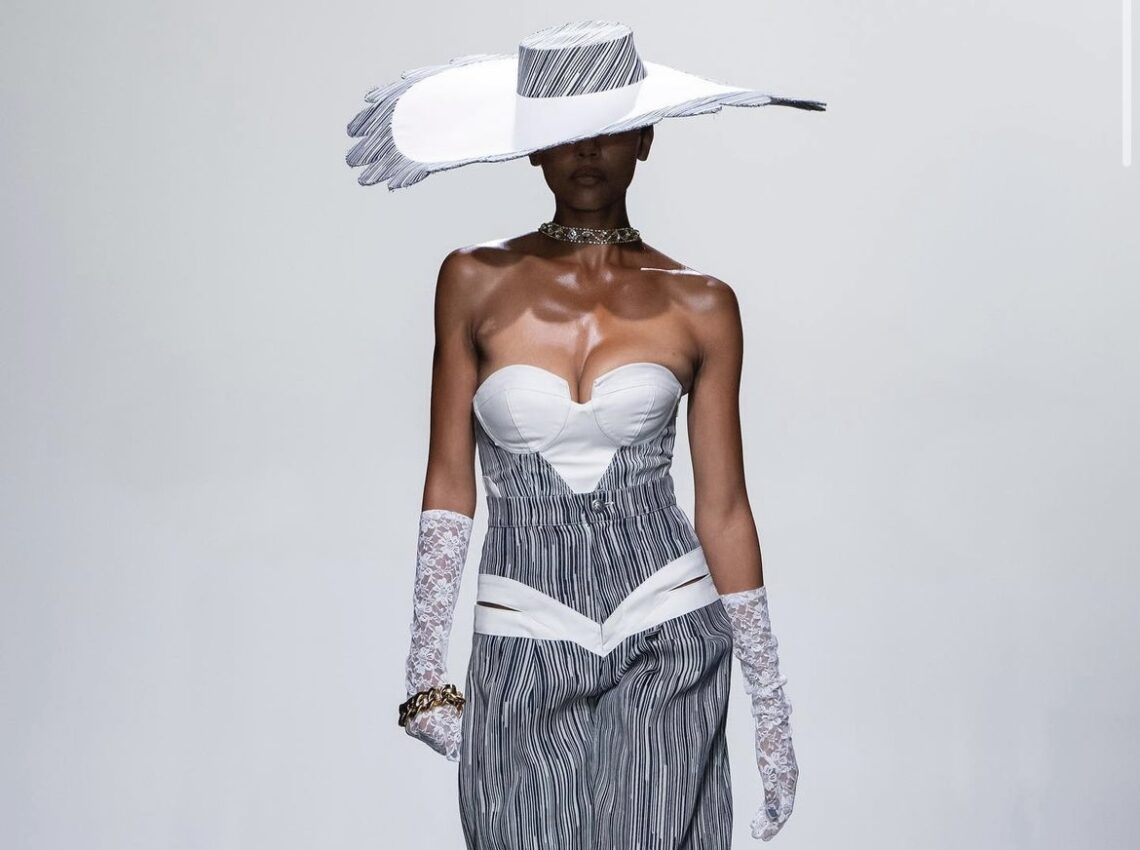


![Remel London’s [@Remel_London] “Mainstream” is a must attend for upcoming presenters!](https://guap.co/wp-content/uploads/2017/02/REMEL-LONDON-FLYER-FINAL-YELLOW-COMPLETE-1.png)